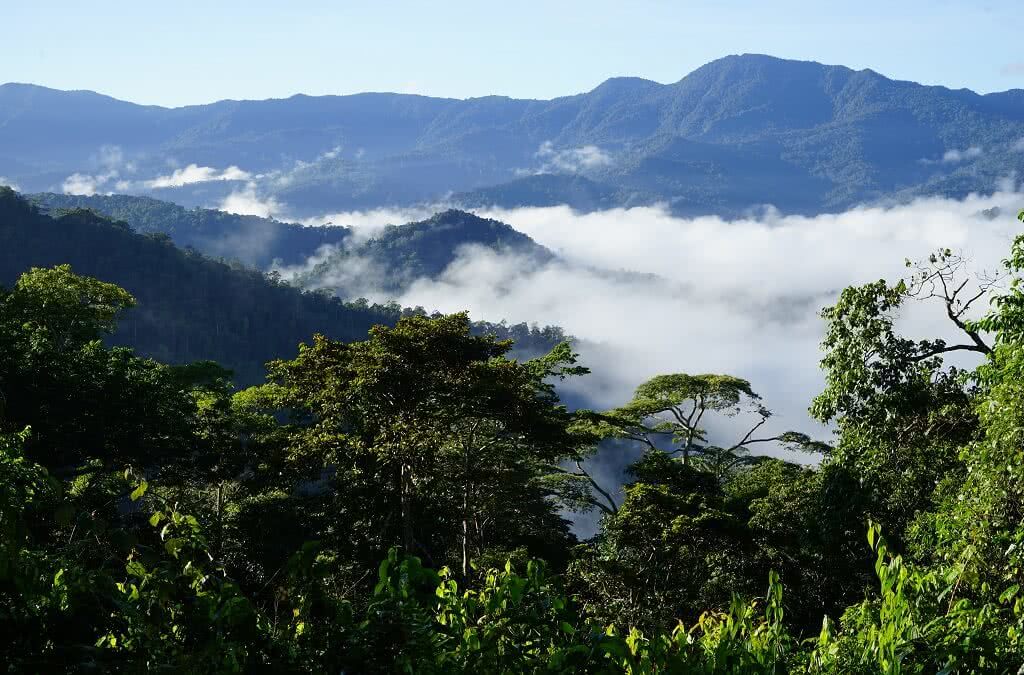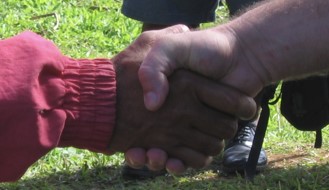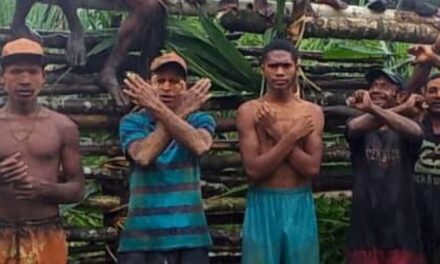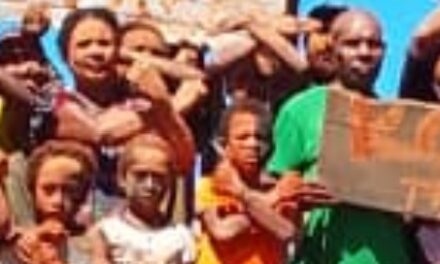The review of the Kokoda Trail for a World Heritage listing by the late Mr Peter Hitchcock, Dr Jennifer Gabriel and Dr Matthew Leavesley has exposed the myth of its relevance to our shared wartime heritage associated with the Kokoda campaign. The authors of the 2nd Joint Understanding should be called upon to explain why they were not aware of the review – or why they chose to ignore it.
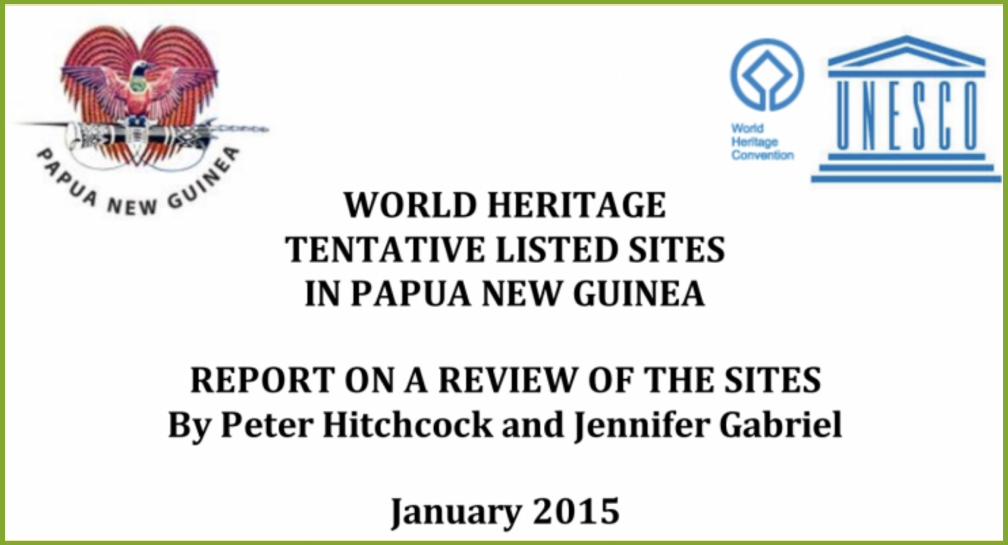
The following citation for a preliminary listing of the Kokoda Trail and Owen Stanley Ranges was prepared by the PNG Department of Environment and Conservation in 2006:
‘The property is a mixed cultural and natural site covering a significant proportion of the Owen Stanley Ranges near Port Moresby and potentially including the Kokoda Track, Managalas Plateau and Mount Victoria and Mount Albert Edward region. The Owen Stanley Ranges, through which the Kokoda Track passes, is one of the most biologically important areas in the Asia Pacific. The 3,800 m high Ranges are a significant element of the globally outstanding (G200) South East Papua Rainforest Ecoregion. Extreme altitudinal and climatic variation have produced a rich variety of vegetation types from savanna to monsoon forest, lowland rainforest and cloud forest. Some of the most extensive and least disturbed subalpine herb and grasslands in New Guinea are found on Mount Albert Edward. The Owen Stanley Mountains Centre of Plant Diversity has one of the richest floras of any mountain range in New Guinea with more than 4000 plant species including many local endemics. This exceeds the floral diversity of the entire World Heritage listed wet tropic rainforests of North Queensland. The Owen Stanley forests provide habitat for endemic birds of paradise, bowerbirds, finches, wallabies, rats and numerous species of butterflies and aquatic insects including several endangered or critically endangered species. The Central Papuan Mountains Endemic Bird Area is one of the richest areas for endemic birds on earth with 510 species (almost two thirds of all New Guinea birds) and 40 endemic or near endemic species.
The Laloki/Brown River wetlands is a particularly important dry season refuge for migrant waterfowl from Australia and a staging area for migratory Palearctic shorebirds. The southern flanks of the Range provide part of the water catchment for Port Moresby. The Koiari and Orokaiva peoples, the traditional owners of the region, retain a subsistence economy augmented by income from a growing tourism industry. Communities strongly support the protection of the historical and natural values of the Track and proudly demonstrate their culture. The Kokoda Track is iconic in the history of PNG, Australia and New Zealand as the site of a major World War II battle that turned the fortunes of the Japanese in the Pacific. This is PNG’s most significant land-based tourism drawcard offering a combination of historical, cultural and natural features. 2000 trekkers walked the gruelling ten-day journey in 2005 and further growth is anticipated. The current Kokoda Track Reserve protects an area only 10 meters wide on either side of the track. A Kokoda Memorial Park is now proposed that will protect the historic, cultural and natural values of the region in much larger reserve. A 300,000-ha protected area is also being established on the Managalas Plateau. The Kokoda Track Authority was established in 2005 to develop a coherent management regime for the Track region and a Sustainable Tourism Strategy will be launched in April 2006.’[i]
The following points indicate that the citation may well have been a ‘cut and paste’ exercise by Australian environmental officials attached to the PNG Department of Environment and Conservation:
- There were no New Zealand forces involved in the Kokoda campaign;
- the ‘Brown River catchment area as a possible power and water resource for Port Moresby was not identified; and
- there is no mention of the significance of our shared military heritage across the Kokoda Trail.
First Joint Understanding: 23 April 2008
This led to a Joint Understanding between Australian and PNG which was signed by the two Environment Ministers in Madang on 23 April 2008. It contained the following Vision Statement:
‘The Governments of Papua New Guinea and Australia have a vision for the future of the Kokoda Track and the Owen Stanley Ranges that includes:
- Sustainable development of people and communities along the Kokoda Track corridor, including improved economic opportunities and livelihoods, health, education, transport and related services.
- Preservation of the historic values of the Kokoda Track, and maintenance of the integrity of the Track and of the special qualities of the trekking experience.
- Preservation of the water catchment in the Owen Stanley Ranges for future power and water supply for Port Moresby.
- Maximising the potential forest carbon benefits.
- Recognition of the World Heritage cultural and biodiversity values of the Owen Stanley Ranges.’
The following economic, social and management objectives supported the Vision Statement:
- An improved standard of living, quality of life, and access to basic services for communities along the Kokoda Track corridor.
- Improved opportunities for income generation, through the following:
- sharing benefits from tourism on the Kokoda Track, through better distribution of trekking fees and development of local income generation opportunities (business and employment);
- improved access to markets (transport) for other income generation opportunities; and
- assistance with quantifying and accessing long term benefits from natural resources (e.g. water and/ or carbon rights). In this regard, investment in avoided deforestation in the Owen Stanley Ranges may deliver wider benefits for communities and national natural resource management.
- The preservation of social and cultural values of the World War II route.
- A feasibility study into a World Heritage nomination and management framework.
- The impacts of trekking are managed to deliver clear net environmental benefits for the Kokoda Track Communities.
- The PNG Government is supported in its efforts to maintain the Brown River Catchment, given its national importance as a potential water and power supply for Port Moresby.
- The Owen Stanley Ranges, as one of PNG’s major carbon stores, will be assessed along with other locations as potential sites for demonstration REDD activities within the Papua New Guinea – Australia Forest Carbon Partnership.
- The World Heritage values of the Kokoda Track and Owen Stanley Ranges are understood and, where appropriate, protected.
- Address immediate needs for the 2008 trekking season and create interim Kokoda Track management arrangements.
- Develop appropriate and effective coordination and management arrangements for the long term.
The Joint Understanding included the following issues regarding climate change and World Heritage:
The Owen Stanley Range is one of PNG’s major carbon stores, contributing to global climate stability and underpinning our global ecosystem, and will be assessed along with other locations as potential sites for demonstration REDD activities within the Papua New Guinea – Australia Forest Carbon Partnership.
The aim is to build PNG’s technical capacity for REDD activities, particularly in relation to forest carbon accounting. This will be achieved through the following activities:
- Under the Papua New Guinea – Australia Forest Carbon Partnership, Australia is assisting PNG to develop a national forest carbon accounting system. This system will enable PNG to respond to reporting requirements of the UN Climate Change Convention and support REDD demonstration activities, and participation in future international emissions trading. This system may also assist in monitoring requirements for the World Heritage listing of the Owen Stanley Ranges.
- PNG aims to develop a 3-5-year REDD plan with its development partners by the end of 2008. Australian support will be provided within the context of the three areas of the Papua New Guinea – Australia Forest Carbon Partnership: policy dialogue, forest carbon accounting and REDD demonstration activities.
The Owen Stanley Ranges and Kokoda Track were submitted by the Government of PNG for tentative World Heritage listing in 2006. The tentative listing is based on the outstanding biodiversity values and cultural values of the Owen Stanley Ranges area, including the Kokoda Track corridor.
At the request of the Government of PNG, the Australian Government will provide technical assistance to support a feasibility study for a possible World Heritage nomination of the Owen Stanley Ranges area by the Government of PNG, including:
- Deployment of Australian Government experts to the PNG Department of the Environment and Conservation to facilitate PNG Government processes to enable identification and consideration of a proposed World Heritage area.
- Provision of expert advice to assist PNG in undertaking a values assessment and associated comparative analysis for a potential World Heritage nomination.
- If appropriate, provision of expert advice to assist PNG with ongoing management of any identified World Heritage area (for example through a twinning arrangement with managers of an Australian World Heritage area).
| Comment Initiatives introduced to provide ‘improved opportunities for income generation’ have clearly failed. No action has been taken to prepare a Military Heritage Master Heritage Plan for the Kokoda Trail or to protect historical sites which have been desecrated since the signing of the Joint Understanding. No action has been taken to develop a master plan to protect the environment of the Kokoda Trail. As a result, large sections of the trail have been degraded and sections of the trail are dangerously unsafe. No action has been taken to identify landowners along the trail or to identify the indigenous names of geographic features, rivers and creeks along the trail. The issues relating to Climate Change and World Heritage are irrelevant to our shared wartime heritage along the Kokoda Trail. |
2nd Joint Understanding: 10 September 2015
A 2nd Joint Understanding titled ‘Papua New Guinea-Australia Joint Declaration on the Preservation of the Kokoda Track Region was signed between former Prime Ministers, Tony Abbott and Peter O’Neill on 10 September.
The 2nd Joint Understanding declared:
‘1. Papua New Guinea and Australia today decided to extend beyond 2015, the current arrangement for the sustainable development of the Owen Stanley Ranges, Brown River Catchment and Kokoda Track region and protection of its special natural, cultural and historic values.
‘2. This decision recognises our shared history through participation in World War II and its role in strengthening our modern bilateral partnership and people-to-people relationships.
‘3. We decided that our cooperation for the preservation of the Kokoda Track region will be an enduring partnership which recognises the significance of the Kokoda Track as a monument to friendship, courage, endurance and sacrifice that both countries demonstrated during World War II in defence of our shared values.
‘4. We recognise that over seventy years after our people fought together in the region, the Kokoda Track continues to be an important meeting place where we can reflect on the virtues demonstrated by Papua New Guineans and Australians in times of hardship.
‘5. We recognise the iconic nature of the Kokoda Track region and its symbolism for the modern Papua New Guinea-Australia relationship. We therefore commit to the Track continuing to remain open, safe, well-managed and preserved as shared heritage.
‘6. We recognise that the communities living in the Kokoda Track region are custodians of a land that has spiritual connections for both Papua New Guineans and Australians. We acknowledge their development needs, including in service delivery and improved economic opportunities.
‘7. We acknowledge that the people of the Kokoda Track region have a rich and long history with this land and that the broader Owen Stanley Ranges is home to an extraordinary diversity of plants and animals. We commit to protection of the environment, biodiversity and cultural heritage, and for Australia to support working towards international recognition of the region through a World Heritage listing if Papua New Guinea was to seek such a listing.
‘8. While Papua New Guinea’s National Government will continue to play a lead role, we recognise the importance of working in partnership at all levels of government and with communities, churches, the trekking industry, non-government organisations and the private sector, to achieve our shared vision for the Kokoda Track and the region.
‘9. We make this declaration in the spirit of the Joint Declaration for a New Papua New Guinea-Australia Partnership signed in May 2013 which among other things, commits us to promote economic and social development; support Papua New Guinea’s efforts to improve the quality of life of all its citizens; and environmental protection and sharing of expertise in the sustainable management of natural resources.
‘10. The Kokoda Initiative Committee, with representation from Papua New Guinea and Australia, will provide guidance and direction on the activities to be funded by the Papua New Guinea and Australian Governments under this declaration.’
| Comment: The fact that ‘mateship’ was substituted by ‘friendship’ indicates that it was prepared by Department of Environment officials who are either ideologically opposed to the term ‘mateship’ or do not understand the military significance of the term. The authors of the document were obviously unaware that the Chinese Government had committed to the construction of the Edevu Dam on the Brown River to secure the future water and hydro needs of Port Moresby. The authors also seem to be unaware that the ‘culture’ of the Koiari and Orokaiva people along the trail has been subjugated by the Seventh Day Adventist Church who have eliminated all traditional customs from village life. All villagers now attend church twice daily at 6.00 AM and 6.00 PM and virtually all day on the Sabbath. Their devotion to the church is an impediment to providing opportunities for additional income as they are obligated to do enough work to maintain their food supply and the rest of their day is devoted to the church. The benefits from their Christian conversion are that there are no alcohol or drug issues across the trail; no alcohol-fuelled domestic violence issues; they are dedicated to better health and education outcomes; and to traditional clan and family structures. References to a World Heritage listing are irrelevant to the Kokoda Trail as ‘wartime heritage’ is not a factor for consideration for such a listing. |
Report on a Review of the Kokoda Trail for a World Heritage Listing[ii]
The authors of the 2nd Joint Understanding seem to have been unaware of a report on World Heritage Tentative Listed sites in PNG. A
detailed review of the Kokoda Trail by the late Mr Peter Hitchcock AM (who was regarded as one of the world’s senior specialists on World Heritage and forest conservation) and Dr Jennifer Gabriel – an anthropologist at James Cook University concluded that:
‘The Kokoda Initiative, a joint arrangement between the PNG and Australian Governments, has resulted in substantial studies, planning and community development, almost wholly confined to the Kokoda Track and its immediate vicinity. An ‘Interim Protection Area’ has been identified but not formally promulgated. There appears to have been no tangible progress in formal protection of the Tentative Listed area since 2006. If PNG is to take the Kokoda Track-Owen Stanley Ranges Tentative listing seriously, there is a need to commit to further progressing research, field survey and protection. World Heritage nomination for any part of the proposed Tentative List area should not be considered until biodiversity research, landowner agreements and protection are much further advanced. The current Kokoda Track Initiative has identified an Interim Protection Zone (IPZ), the whole of which falls within the Tentative Listed Area. If that interim protected area is converted into a permanent protection zone, it would make a very significant contribution to KOKODA TRACK AND OWEN STANLEY RANGES 67 protection of the Tentative Listed area. However, the IPZ has little prospect of being able to stand alone as a World Heritage nomination, at least on natural heritage values. Given the on-going threat to heritage values by mining and other development activities, no part of the Kokoda Track and Owen Stanley Ranges Tentative Listed area should be considered for formal nomination as a World Heritage area until such time as an adequate extent of high value areas is formally protected. Given this prerequisite, it may be years before a suitable tract of land is protected and worth considering for World Heritage nomination.’
The late Mr Peter Hitchcock AM and Dr Jennifer Gabriel were assisted by Dr Matthew Leavesley FSA Adjunct Lecturer in Archaeology James Cook University Lecturer in Archaeology from the University of Papua New Guinea in the compilation of their report.
[i] https://www.sprep.org/attachments/VirLib/PNG/world-heritage-sites-png.pdf[i] Department of Environment and Conservation. Central and Oro Provinces. Appendix 1: Citation for Tentative Listing, Papua New Guinea, Date of Submission: 06/06/2006, Criteria: (iii)(v)(vi)(vii)(x), Category: Mixed
[ii] https://www.sprep.org/attachments/VirLib/PNG/world-heritage-sites-png.pdf

